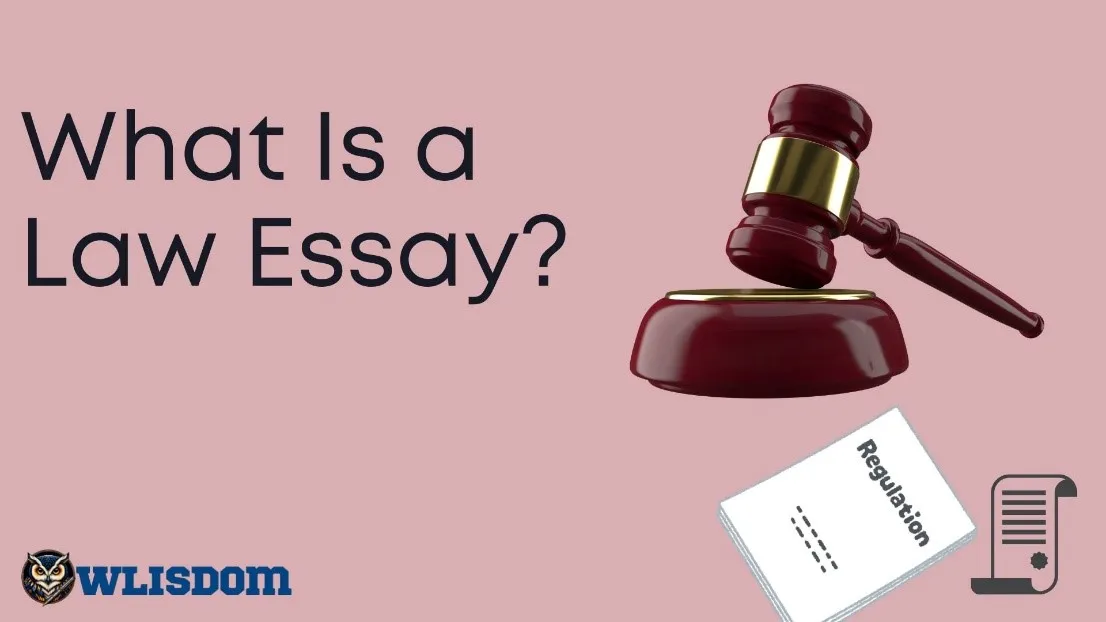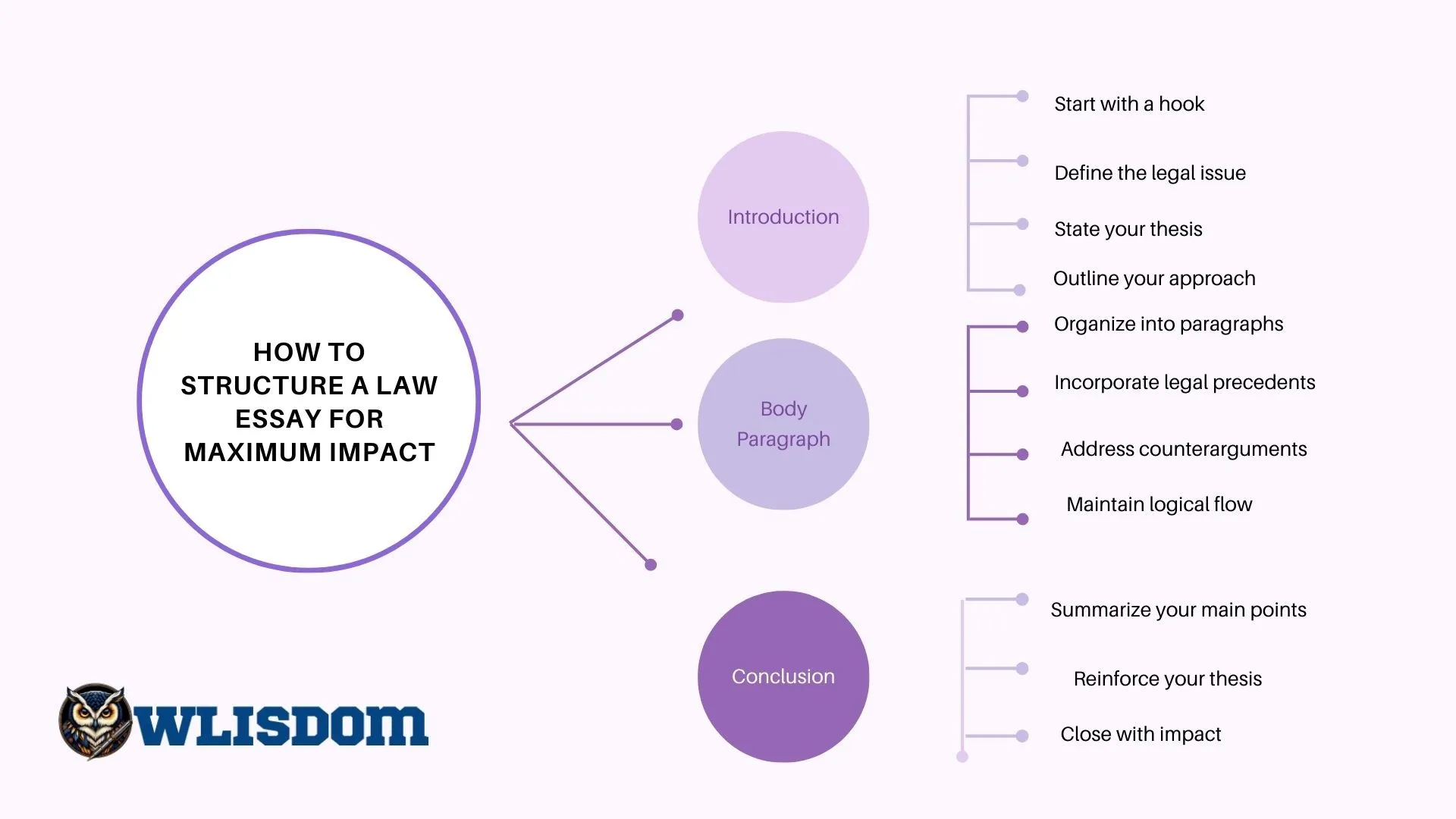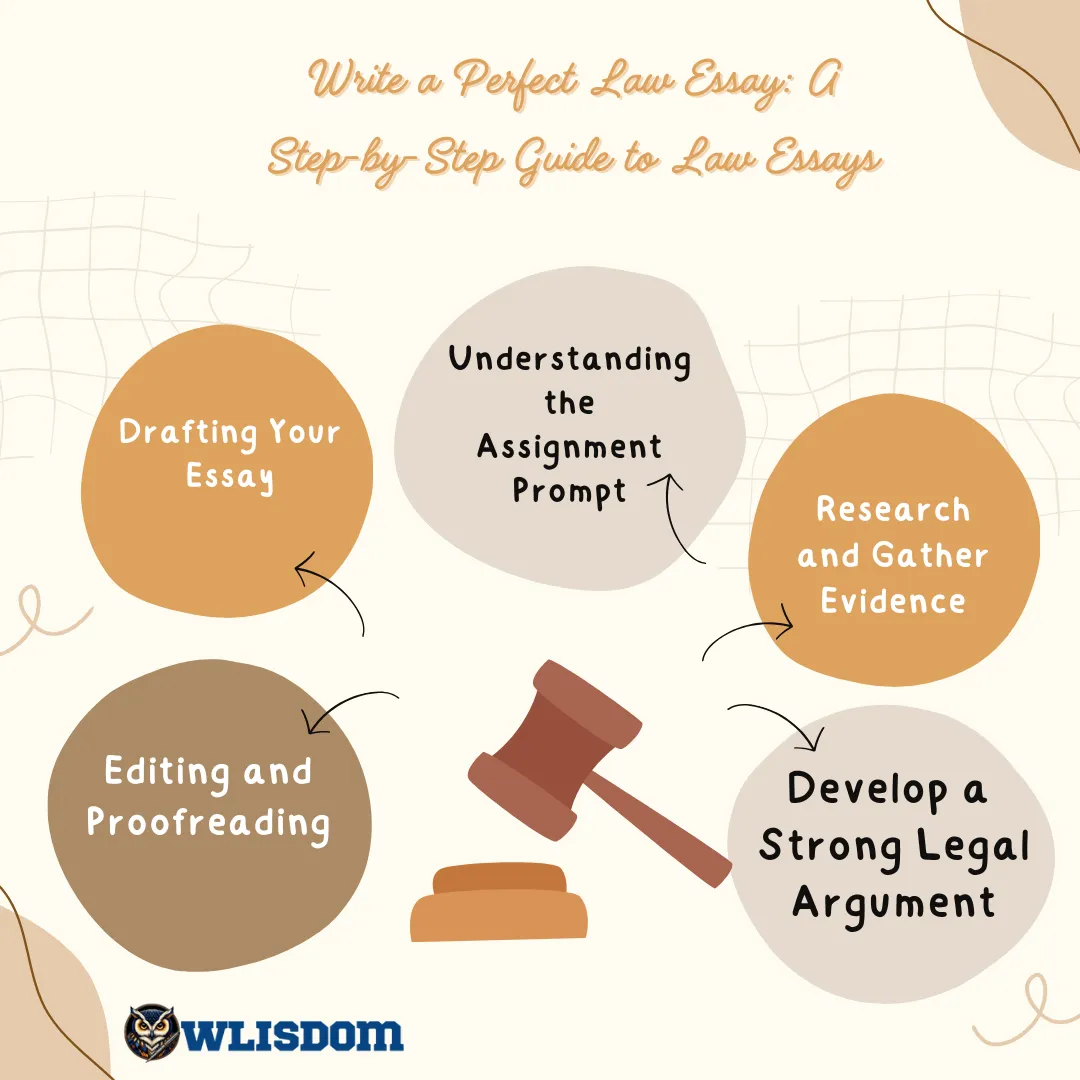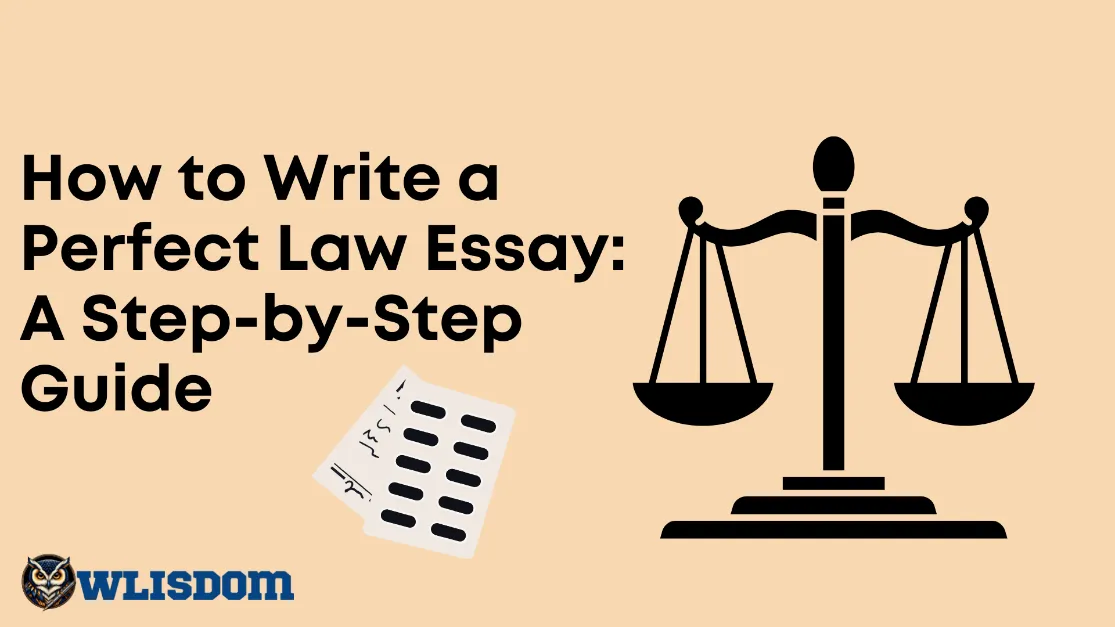How to Write a Perfect Law Essay: A Step-by-Step Guide
Published: 01-17-2025
Modified: 01-17-2025
Crafting a law essay is no small feat. As a cornerstone of legal education, law essays play a critical role in developing students' ability to think analytically, build logical arguments, and apply legal principles effectively.
A report indicated that Approximately 60% of law students write between 26 and 100 pages annually, with over 27% writing specifically between 51-75 pages. Notably, nearly 19% of law students produce over 125 pages in a school year. so there is a lot of writing I law schools and you need to get grip on it.
But many students face a lot of difficulty in writing law essays. Such questions as Where do I start? or how do I organize this debate? often leave students feeling stuck.
Well, this blog is for those students. From the basic level of writing your first law essay to the advanced level, where you want to sharpen your writing skills and learn how to write a perfect law essay, this blog will guide you through each step. It will cover the basics of law essay structure, a step-by-step guide to law essays, trending topics, and essential tips to get you started.
What Is a Law Essay?

A law essay is an individual type of academic activity aimed at evaluating your skills in the analysis of legal provisions, arguing, and critical thinking. A perfect law essay's arguments must adhere strictly and explicitly to legal reasoning, and proponents for different propositions shall be supported by legal instruments such as legal precedents, statutes, or case law.
The purpose of a law essay is twofold:
- It measures your critical and logical thinking skills.
- It tests your knowledge of the subject matter
So, what makes a law essay different?
A survey by the National Conference of Bar Examiners (NCBE) found that newly licensed lawyers rated "Written communication" as the most significant skill, with an average significance rating of 3.77 out of 4.
So, a good law essay isn't about giving information; it is about providing information in a coherent narrative backed by legal analysis, a skill that is required later in your career.
How to Structure a Law Essay for Maximum Impact

Writing a law essay is not about what to write but how to write and how to make your arguments flow and cohesively provide the best argument possible. Good structure is the key to a logical flow in front of the reader and making the targeted essay both argumentative and formal. Selecting the right resources is crucial to crafting a strong essay. Best Legal Databases for Law Students to enhance your research and ensure you have access to the most reliable and up-to-date legal information.
To give you an idea of how to structure a law essay, It has three components:
The Introduction: Setting the Stage
Your introduction is the first step in the writing of your essay. It must hook the reader and must also indicate the areas to be covered in the discussion.
Start with a hook: It could be the latest numerical finding, a significant legal development, or a question asked on the think tank.
Define the legal issue: In one or two sentences, explain what your essay is about – namely, the topic or legal problem.
State your thesis: State your thesis or a clear stance you are taking about the issue you are handling.
Remember, as Jeffery R. Wilson said, Having a Good Thesis Makes Writing a Paper Easy. Everything else falls into place once you've got a well-thought-out, well-written thesis.
Outline your approach: State the direction you will be taking in your essay to enable the reader to follow you.
The Body: Building Your Argument
The body is at the core to write a perfect law essay. This is where you state why you support the thesis, show the proof, and respond to the opposing views.
Organize into paragraphs: Every paragraph should have one concern or issue. Begin with a topic sentence and then cite a case, statute, or academic opinion and show how it relates to the thesis statement.
Incorporate legal precedents: Ensure that you support your arguments with real-life examples and or laws. This proves your legal awareness.
Address counterarguments: Admit and alter opposing views with evidence. It enriches your argument and explains why you came to a given conclusion and makes the whole process of thinking more democratic.
Maintain logical flow: Organize your arguments in a sequential manner that will take the reader through your final observation.
The Conclusion: Tying It All Together
It is not the time to create new arguments but a time to defend the ones that you have been holding onto.
Summarize your main points: Summarize the main points that were discussed in the body part of your work.
Reinforce your thesis: Summarize your stance powerfully.
Close with impact: It is thus essential to conclude with a bang, emphasizing the relevance of your argument in the legal arena.
Feeling Overwhelmed with all these instructions and want somwone else to take care of it? Reach out to Owlisdom. With Owlisdom's expert guidance, mastering the art of law essays becomes effortless—legal writing made easy for students at every level.
Law Essay Example
Following the above instructions, here is a complete sample of a law essay to give you a better idea:
Complete sample of a law essay to give you a better idea
Write a Perfect Law Essay: A Step-by-Step Guide to Law Essays

Here is a step-by-step guide to writing a perfect law essay.
Understanding the Assignment Prompt
As with any good piece of legal writing, a law essay starts with ensuring you fully understand what the question is asking. This clarity will guide your approach and ensure your essay is focused and relevant. If you're looking to streamline your research process, learn how AI can assist in your research by reading Using ChatGPT in Legal Research. This can help you gather pertinent information quickly and effectively, giving you a strong foundation for your essay.
Read Carefully: First of all, reread the essay question several times in order to make sure that you understand what you are required to do. Circles the critical points and ensure that you know what is required of you. For example, is the question asking you to argue, analyze, or compare?
Identify Legal Issues: Identify the specific legal problems that you are going to solve in your paper. Such a task could involve statute interpretation, assessing a precedent, or discussing a doctrine. Write down these issues to help you remain on track.
It will help you stay relevant and on track when you take the time to analyze the prompt before beginning to write a perfect law essay.
Research and Gather Evidence
Law essays are built on research; thus, research should be limited to credible sources. You must base your arguments on legal evidence only.
Use Reliable Sources: Search for the case law and statutes, and the journal or textbook of the law. The fundamental database sources to begin with are LexisNexis, Westlaw and published articles from academic law journals.
Take Organized Notes: As you work through your sources, write down notes that will later form the outline, and keep a list of sources you have used. Organize your notes by the topic or the type of evidence to write when drafting a paper.
Don't Overload: Do not try to gather too much information so that you overwhelm yourself instead of getting the information that will directly support your argument.
The successful organization of your research will help you write a perfect law essay on time and provide the necessary support.
Develop a Strong Legal Argument
This is where the magic is made—crafting a strong legal argument that convinces your reader.
Formulate Your Thesis: Your thesis statement is the central part of your essay. It should announce your stand and the general tenor of the rest of the argument to the readers. For example, "Social media paradigms should be made legally responsible for the content that spreads negative messages unless they play a huge part in promoting the same content."
Support with Legal Reasoning: Support your thesis by giving proper arguments and evidence. Use statistical evidence to support a litigious case, use cases, statutes, and operations, along with learning legal opinions to build a strong case.
Address Counterarguments: In your writing, recognize other opinions and give counterarguments. Besides, it makes your argument stronger and demonstrates that you are providing relatively objective arguments.
A sound argument is what turns a good essay into a persuasive legal memorandum and vice versa.
Drafting Your Essay
Having gathered evidence and having formed your evidence-based argument, the next step is putting it all together.
Start Strong: Start off with the right, giving a brief overview of the subject matter and a thesis statement.
Build Logical Body Paragraphs: The idea is to write each new paragraph on one argument. Mention a topic, support it with an assessment, and connect it to your thesis statement.
Conclude Effectively: Warm up with an effective conclusion that will bring your findings in a conclusive form and reiterate your thesis.
Just make sure your writing is not too elaborate—while legal essays do not mind long essays, they do not like fancy writing.
Editing and Proofreading
Your first draft is never perfect. Revising and proofreading are important phases to write a perfect law essay and you need to spend enough time to work it out properly.
Check for Clarity and Grammar: Make sure that the grammar in the essay is correct and that your comprehension should be easily understandable. Use Grammarly and hemingway for that.
Verify Legal Citations: Ensure that all case law, statutes, or any other reference that may be made is accurate. Citations are essential in legal writing.
Refine Arguments: Check that your evidence backs your thesis statement and eliminate fluff.
Law Essay Writing Tips for Students
Below are some practical law essay writing tips for students to come up with a good paper.
Plan Before You Write
Do not jump in the water without a direction on how to swim. Make an outline that should contain the introduction, the main arguments discussed in the essay, and the conclusion.
Stay Focused on the Question
Do not use information that may encumber, confuse or create a digression from the primary arguments. Staying on track in the written communication makes the message to be clear and has a significant impact.
Use Clear and Concise Language
Avoid the use of complex language when writing their instructions. In legal writing, the important thing is to be simple. Do not use complex organizational terms, and your points should be easy to follow.
Cite Legal Sources Accurately
Your claims should be supported by legal authorities, such as case law, statutes, and articles. Use proper citation formats (APA, MLA, Chicago, Harvard).
For students needing additional support, law essay writing service like Owlisdom can provide tailored assistance to ensure your work meets professional standards.
Closing Thoughts
A law essay is more than just a written assignment; it is a chance to build crucial skills in logical thinking, argumentation, and critical analysis. In fact, a good law essay comprises a well-organized structure, reasoned and rational argument, and appropriate consideration of details. Each and every aspect, starting from the understanding of the assignment question to writing, revising, and citation, is very critical in the process.
By trying to adhere to all the recommendations given in this guide, you will be able to cope with any problematic law essay prompt. Start today, become the best in law essay writing, or Visit Owlisdom to get more assistance and improve your academic and professional life!



